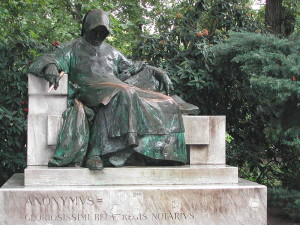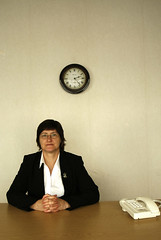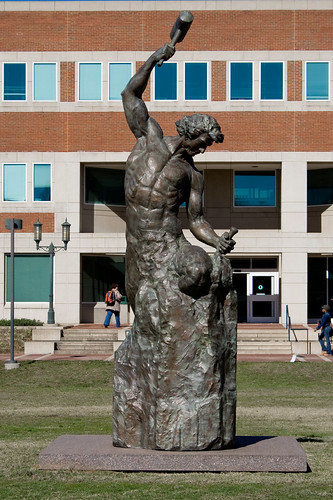
To a modern reader, the Bible seems obsessed with names:
- The genealogies of Genesis and the Gospels
- The book-length census in Numbers – which is then repeated Deuteronomy
- Lists of David’s soldiers
- Paul’s greetings to Christians in other cities in his letters
This concern with names goes to the very beginning of the Bible: one of the first jobs that God gives Adam is to name all the animals.
Considering this emphasis on names, it’s surprising when the Bible features a person without telling us their name. When we’re told the names of everyone and his brother, the anonymous person jumps out as surprising and notable.
The Girl from Israel
Now Naaman was commander of the army of the king of Aram. He was a great man in the sight of his master and highly regarded, because through him the Lord had given victory to Aram. He was a valiant soldier, but he had leprosy.
Now bands of raiders from Aram had gone out and had taken captive a young girl from Israel, and she served Naaman’s wife. She said to her mistress, “If only my master would see the prophet who is in Samaria! He would cure him of his leprosy.” (2 Kings 5:1–3)
If you can, imagine yourself in the place of this young girl. Captured by Syrian raiders, now a slave in the house of one of the Syria’s top military leaders, there’s not a single reason why she should be concerned from Naaman’s health. For that matter, no one is asking for her thoughts about Naaman’s leprosy. It’s none of her business.
Further, she’s taking an enormous risk. Naaman is a powerful man. Should the cure not work, or if Naaman takes offense at her presumption, her life would be forfeit. Naaman, however, makes her idea an issue of international diplomacy.
Naaman went to his master and told him what the girl from Israel had said. “By all means, go,” the king of Aram replied. “I will send a letter to the king of Israel.” So Naaman left, taking with him ten talents of silver, six thousand shekels of gold and ten sets of clothing. The letter that he took to the king of Israel read: “With this letter I am sending my servant Naaman to you so that you may cure him of his leprosy.” (2 Kings 5:4–6)
How does the king of Israel respond?
As soon as the king of Israel read the letter, he tore his robes and said, “Am I God? Can I kill and bring back to life? Why does this fellow send someone to me to be cured of his leprosy? See how he is trying to pick a quarrel with me!” (2 Kings 5:7)
He is terrified of this request. The humble servant girl’s suggestion has brought her king to the edge of panic. Continue reading The Girl With No Name


